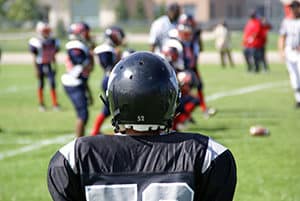
School has started back up in the Puget Sound, and it’s that time again. Everyone is getting get equipped for the year: new backpacks, lesson plans, schedules, sports gear, and transportation arrangements. It’s all about making sure your kiddo has everything that’s needed, right? And as important as it is for them to have a communication plan set up with you in case of emergency, it is equally important for you as the caretaker to understand how to protect them from concussions. After all, almost all kiddos will be hitting the field when the bell rings to play their after-school sport. A concussion may sound like not such a big deal but it is really a brain injury and is quite serious.[1]
On September 4, 2018, the Centers for Disease Control (CDC) revised its recommendations for healthcare providers treating children with mild traumatic brain injuries (mTBI), aka concussions. They can be found here. Although the CDC has 19 different sets of recommendations for healthcare providers when treating children with concussions[2], five key recommendations were recently made, including:
- Diagnostic imaging such as CT scan or MRI should only be used when appropriate, and shouldn’t necessarily be the only thing that helps diagnose a concussion.
- Healthcare providers should use valid, age-appropriate symptom scales to diagnose a concussion. Children and adults won’t necessarily react the same way to a concussion.
- Check for risk factors that would prolong recovery from a concussion, including the child’s personal characteristics and their family history. For example, consider whether the student has learning difficulties, or an unusual family situation.
The CDC also recommends healthcare providers give children and their parents customized instructions on how to return to activity, and when. Fortunately, here in Washington State, we have already led the way in the U.S., by being the first state to have a law spelling out exactly what should be done when a student participating in a sport is suspected of having a concussion, also known as the Zackery Lystedt law.
If you’re ever in the position to get your child in for medical attention for a concussion, remember to speak with your kiddo’s healthcare providers about these new CDC requirements.
[1] Supported by the CDC, Mayo Clinic, the American Academy of Neurology, the U.S. Military, and almost everyone else as of 2018.
[2] The full list can be found here: https://www.cdc.gov/traumaticbraininjury/PediatricmTBIGuideline.html
